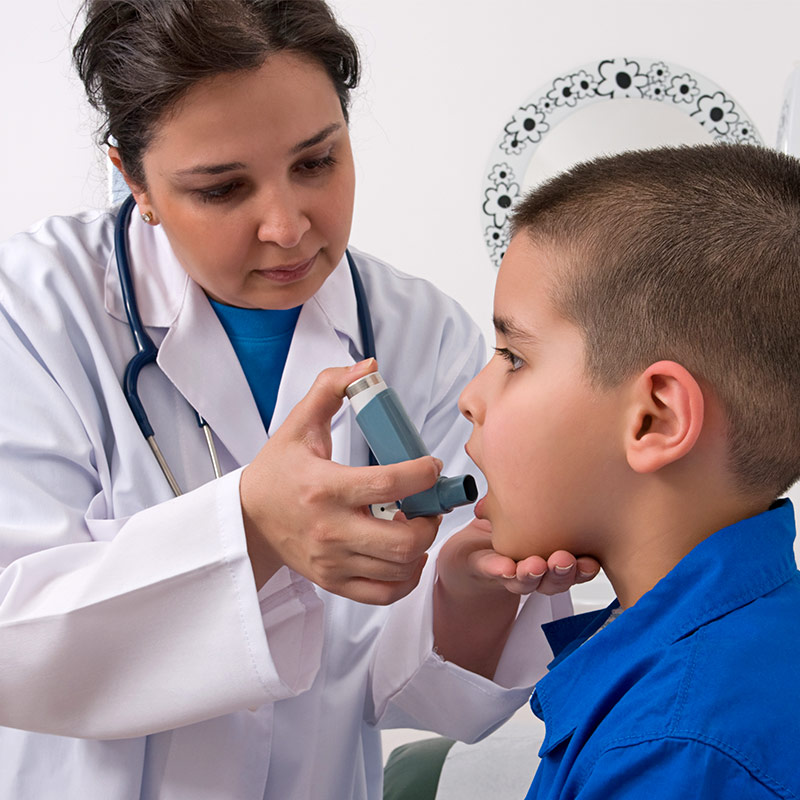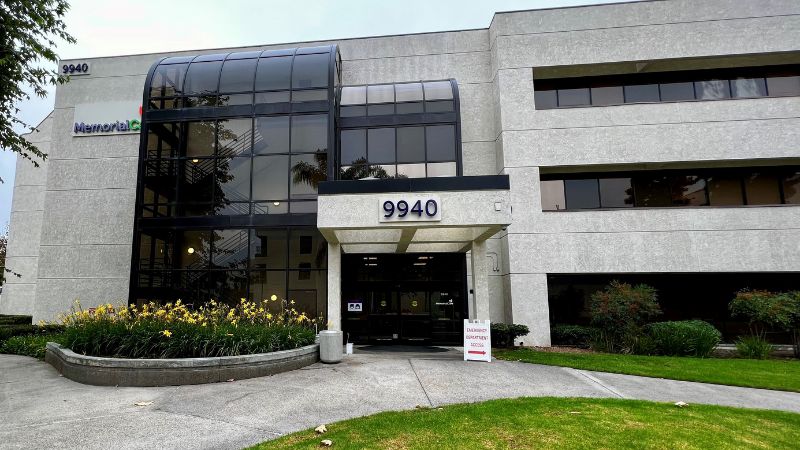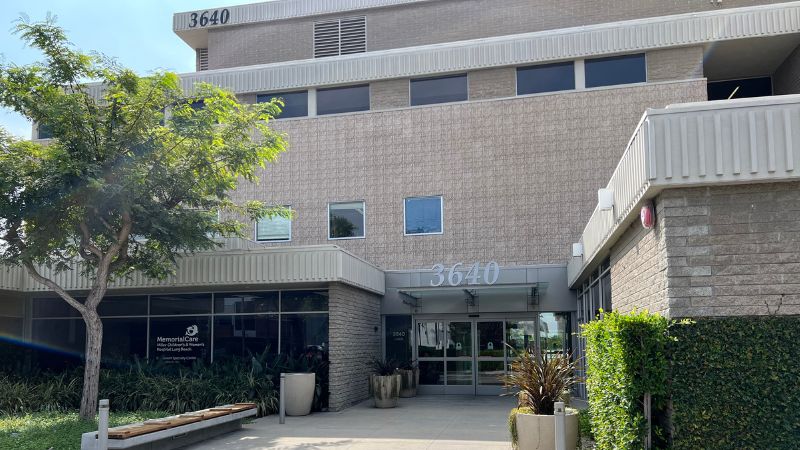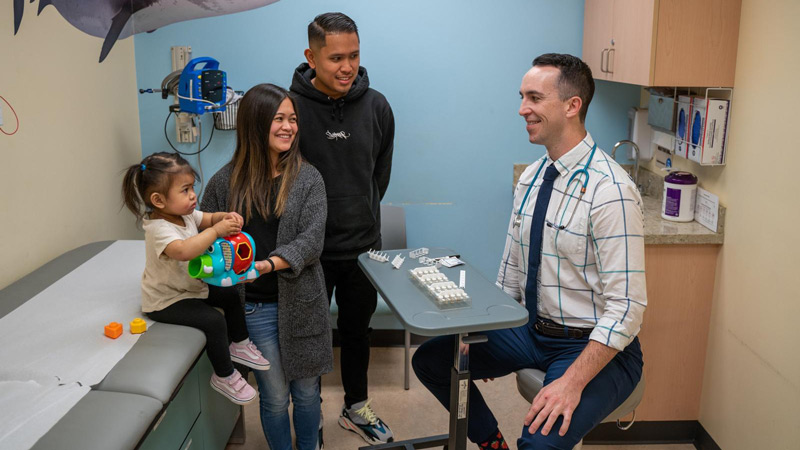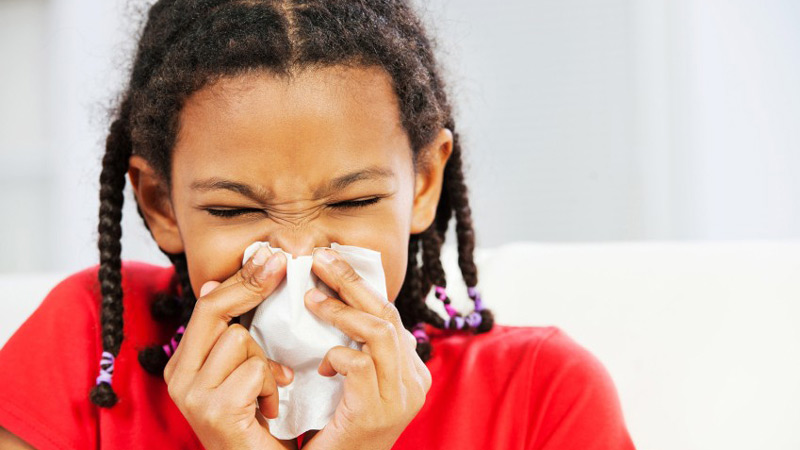Asthma can be overwhelming even for the most prepared families. With an emphasis on education, our Asthma Center care team is here to support each child on their journey to health.
Our Center is consistently recognized for outstanding patient care and outcomes. We're one of only two free-standing children’s hospital in California, and one of a few hospitals in the nation, to receive the Disease Specific Certification in Pediatric Asthma from The Joint Commission. This achievement denotes the highest honor for quality and excellence in patient care for children with asthma.
Whether a child is in the hospital as a result of their asthma or at one of the Outpatient Specialty Centers for a check-up, they will be seen by the same team who collaborates to create an individual treatment plan to help manage the child’s asthma and reduce asthma attacks.
Our education and support for families extend beyond the walls of the hospital through the Long Beach Alliance for Children with Asthma (LBACA), which is a community coalition that is dedicated to improving the lives of children with asthma. LBACA offers a Community Health Worker Asthma Home Visitation Program using a team approach to asthma management, which involves the parent, child, doctor, school, after-school program, childcare, coach, and anyone that spends time caring for the child.
With a focus on patient and family centered care, the pediatric pulmonary care team looks at the family as a crucial member of the care team. Families are encouraged to be hands on in their child’s care to help keep them as healthy as possible.
Through education and support, the care team works with families to reach the following asthma treatment goals:
- The child is free from signs of asthma most of the time
- No hospital stays or emergency room visits because of asthma
- The child is able to exercise and be active without symptoms
- No missed school days because of asthma
- The child sleeps through the night without signs of asthma
A child may be admitted to the hospital when their asthma is not in control, home treatments have failed or if asthma signs become life-threatening.
Reasons for being admitted to the hospital:
- Unable to go 3 to 4 hours comfortably between breathing treatments, even after medicines have been given a chance to work
- Unable to keep medicines or fluids in the stomach without vomiting
- Low amount of oxygen in the blood
A big part of asthma care is learning to manage asthma and keep it in control. This means reducing asthma symptoms and preventing asthma attacks. Managing a child’s asthma at home will help prevent complications.
Asthma that is not well-controlled can lead to:
- More frequent asthma signs and symptoms that can lead to an asthma attack
- Increased trips to the emergency room
- More hospital stays
- More missed school days
- Problems exercising or participating in sports
- More frequent use of oral steroids
- A severe asthma attack that can result in a life-threatening event
Reducing Asthma Triggers
Asthma triggers are things that cause an asthma attack or make it worse. Triggers are different for everyone, and can include, but are not limited to:
- Pets
- Mold
- Smoking
- Strong odors or irritants like hair spray and perfume
- Dust and dust mites
- Air pollution
It isn't possible to avoid all triggers, but they can be minimized in the home. Focus on the rooms where children sleep and play. Keeping these areas clean will reduce the risk of triggers affecting the child.
Work With the Care Team
One of the best ways to keep children with asthma healthy is to work closely with their care team. The care team will discuss an asthma treatment plan for each child and the plan will be provided to the family in an Asthma Action Plan.
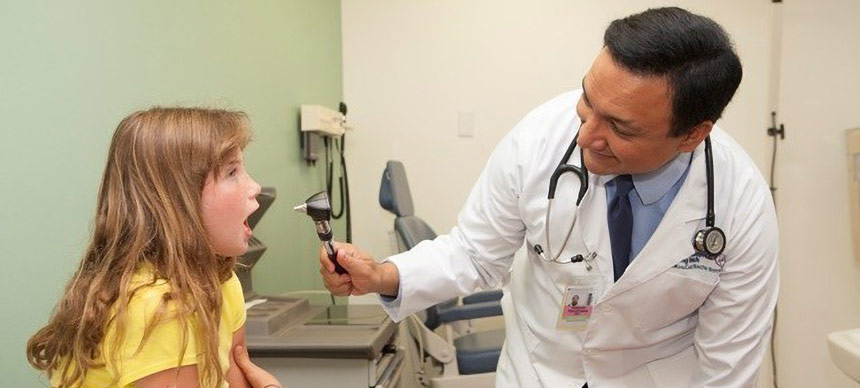
The Asthma Action Plan and the following reminders will help keep asthma in control:
- Filling prescriptions and taking medicines as ordered by the doctor.
- Keeping all scheduled appointments.
- Talk to the care team about the asthma medicines if the child is having difficulty taking them, if they are missing doses, if the medicines are not controlling the child’s asthma, or if there is a concern about possible side effects.
- Calling the doctor when asthma symptoms don’t improve.
- Keep a current copy of the child’s treatment plan on file at their school.
Helpful Tips for Check-up Appointments
- Bring all medicines and spacers with to every visit.
- Bring a copy of the Asthma Action Plan. This is the child’s treatment plan for asthma.
- Be prepared to tell the doctor how many times quick-relief medicine was needed since the last visit.
- Ask about any problems or concerns.
- Write down any questions and bring them to the check-up.
- Keep every appointment, even if the child is doing well!
Allergy Resources
- Food Allergy Research & Education (FARE)
FARE’s mission is to improve the quality of life and the health of individuals with food allergies and to provide them hope through the promise of new treatments.- Phone: (800) 929-4040
- American Academy of Allergy, Asthma & Immunology (AAAAI)
In support of its mission to advance the knowledge and practice of allergy, asthma and immunology for optimal patient care, the AAAAI continually endeavors to create effective and visible platforms for advocacy on issues involving the specialty and its patients.
Asthma Resources
- Allergy & Asthma Network Mothers of Asthmatics (AANMA)
Patient advocacy organization dedicated to improving the lives of those with allergies, asthma and related conditions. - Asthma & Allergy Foundation Of America (AAFA)
AAFA provides educational products including programs, materials, tools, online resources and publications (many available in Spanish).- Phone: (202) 466-7643 or 1-800-7ASTHMA
- Fight Asthma Tracker
Our Fight Asthma Tracker alerts asthma patients to manage their health when asthma danger is high with an interactive website and phone text messages.
Developed by SmartAirLA with guidance from LBACA, the Tracker also pinpoints pollution hotspots in the neighborhoods with high asthma hospitalization and school absenteeism rates for clean air initiatives. LBACA led a coalition of LB-LA Harbor health and environmental organizations that identified the pollution hotspots. Sign up to receive text alerts. - Global Initiative For Asthma (GINA)
GINA was launched in 1993 in collaboration with the National Heart, Lung, and Blood Institute; National Institutes of Health, USA; and the World Health Organization. GINA's program and strategies for asthma care are shaped by committees made up of leading asthma experts from around the world. - Long Beach Alliance for Children with Asthma (LBACA)
LBACA is dedicated to improving the lives of children with asthma in the greater Long Beach area. LBACA is a community coalition that is a part of Miller Children’s & Women's. Patients who participate receive three home visits by a community health worker who offers asthma education, a home environment assessment, and instructions and supplies to help reduce asthma triggers in the home. The community health worker program uses a team approach to asthma management, which involves parent, child, doctor, school, after-school program, childcare, coaches and anyone who spends time caring for the child.- Phone: (562) 933-5650
- National Asthma Education and Prevention Program (NAEPP)
The National Asthma Education and Prevention Program (NAEPP) was initiated to address the growing problem of asthma in the United States. The NAEPP is administered and coordinated by the National Heart, Lung, and Blood Institute (NHLBI). The ultimate goal of the NAEPP is to enhance the quality of life for patients with asthma and decrease asthma-related morbidity and mortality.
General Health Resources
- American Academy of Pediatrics (AAP), Healthy Children
The AAP is an organization of 62,000 pediatricians committed to the optimal physical, mental, and social health and well-being for all infants, children, adolescents and young adults. - The Children’s Clinic
The Children’s Clinic (TCC) offers daily, full-service health care with primary care services for children, adolescents and adults. To make an appointment or receive clinic advice, call (562) 933-0400.
Pulmonary (Lung) Resources
- The American Lung Association (ALA)
The American Lung Association is the leading organization working to save lives by improving lung health and preventing lung disease through education, advocacy and research. ALA provides extensive information on lung health and patient education and is a sponsor of several summer camps.- For printed materials, call (800) LUNG-USA
- National Heart, Lung, and Blood Institute (NHLBI)
NHLBI provides science-based, plain-language information related to heart, lung, blood diseases and sleep disorders.
Centers & Programs
Our Children's Pulmonary Institute has board-certified specialists in pulmonology, allergy and immunology who work together to treat and improve the quality of life for children and young adults with conditions involving the lungs and respiratory system, such as asthma, lung disease of premature infants, cystic fibrosis, allergies, sleep disorders and more.
The Long Beach Alliance for Children with Asthma (LBACA) is a community coalition that is dedicated to improving the lives of children with asthma in the greater Long Beach area.
Your Care Team
Providers

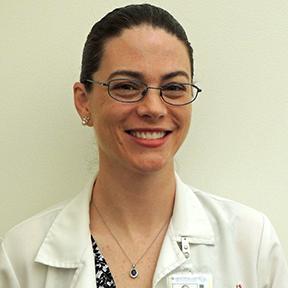
Locations
Other Locations
Awards & Recognition
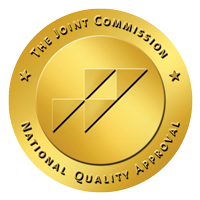 |
We're one of only two free-standing children’s hospital in California, and only one of a few hospitals in the nation, to receive the Disease Specific Certification in Pediatric Asthma from The Joint Commission. This achievement denotes the highest honor for quality and excellence in patient care for children with asthma. |

